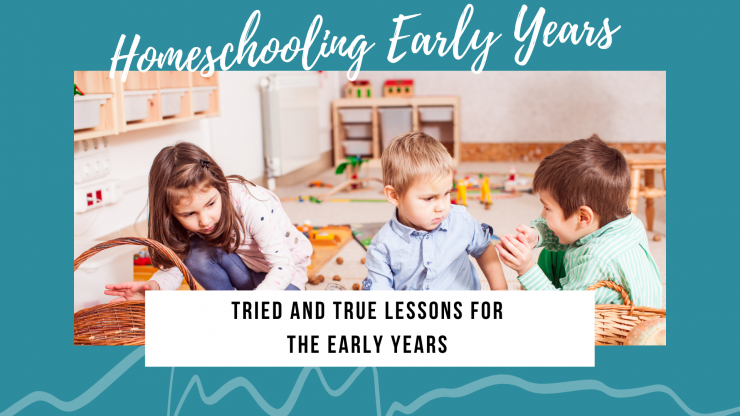
Homeschooling the Early Years: Part 1
You will be surprised by my answer, but the best curriculum for the younger years is PLAY, BOOKS (lots of them), and YOU. The first seven years of a child's life is setting the foundation upon which the rest of their life is built. A child is developing physically and mentally at a rapid pace than any other year in their life.
Connection
Specially during these early years of their childhood, bonding with them will set the tone for the relationship you will have with them. Through connecting, you will build trust with each other, strengthen their confidence in their abilities, and observe them find their strengths and weaknesses.
Life Skills
Children love to imitate their parents so take them along with you as you do your household tasks. You will be surprised by how excited and happy they will be to help you. As long as the tasks are age-appropriate and safe, all you need is a dose of patience as it will take you longer to perform the tasks. However, they will make up these times when they will happily help contribute and help when they are a bit older.
Play
Playing helps children's brains to develop and it allows young children to learn about everything around them. Children's language and communication skills to strengthen as they pretend to play. Join in with your kids as they play and you will see how imaginative their brain is compared to ours. Children learn fine and gross motor skills through physical play. Play is a great way to build the foundation of pre-reading and mathematical concepts.
Read Together
I saved the best for last...read aloud, read with them, listen to them pretend to read, read to them even if it seems like they are not listening...just read to them. Reading with your children will ignite their interest in becoming a reader themselves. Reading aloud helps children not only become a reader but also makes them a better writer.
"During the first 7 years of childhood try to inculcate the thirst for knowledge in your children instead of worrying about teaching them to read or write early on. In the later stages of life, you will see your children will run to acquaint themselves with knowledge."



